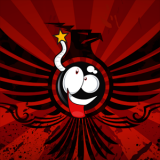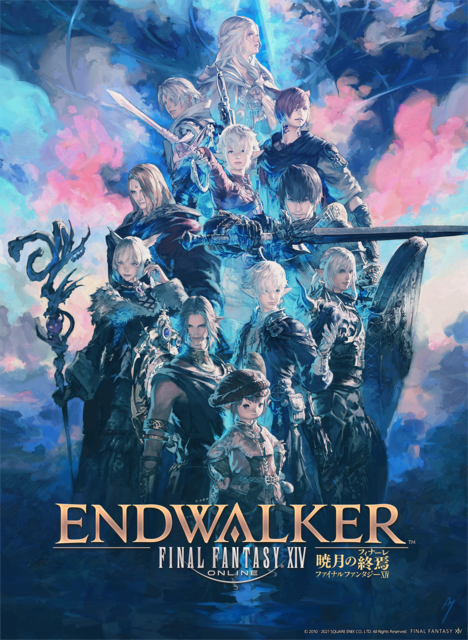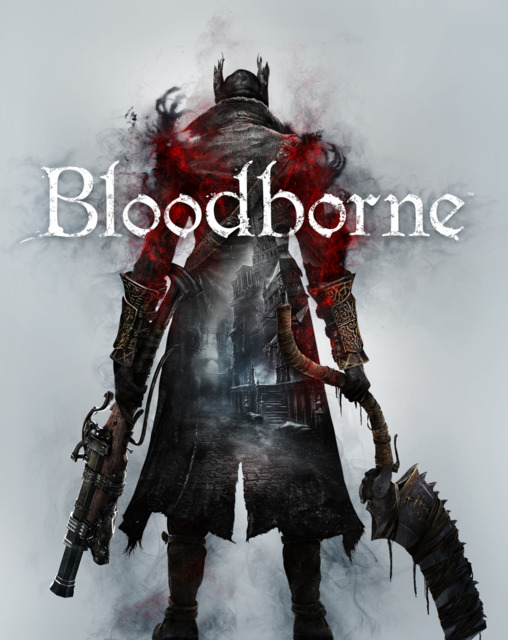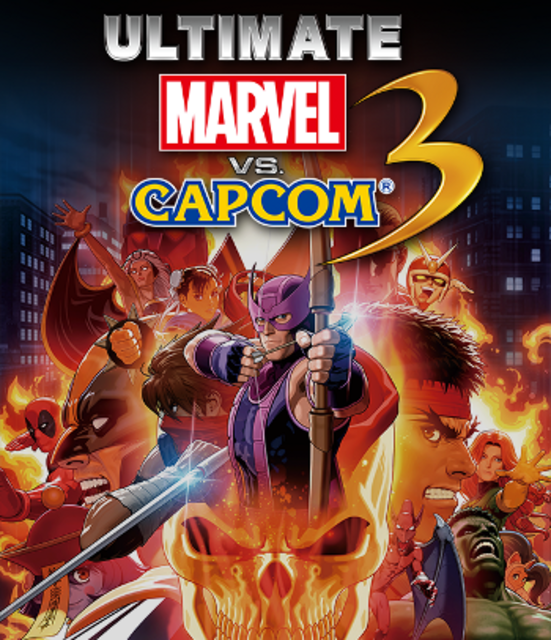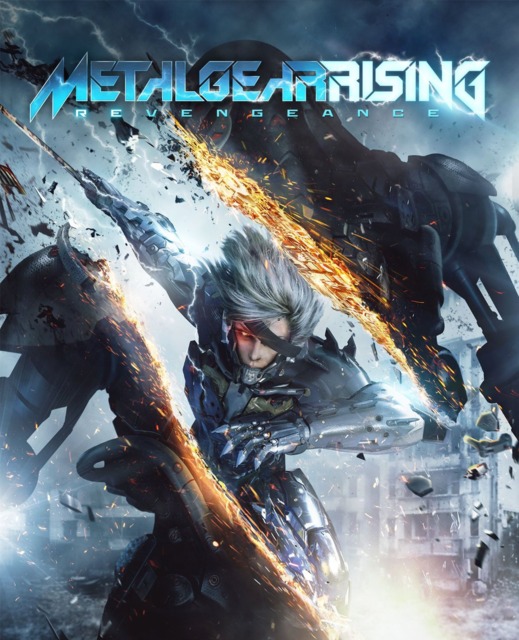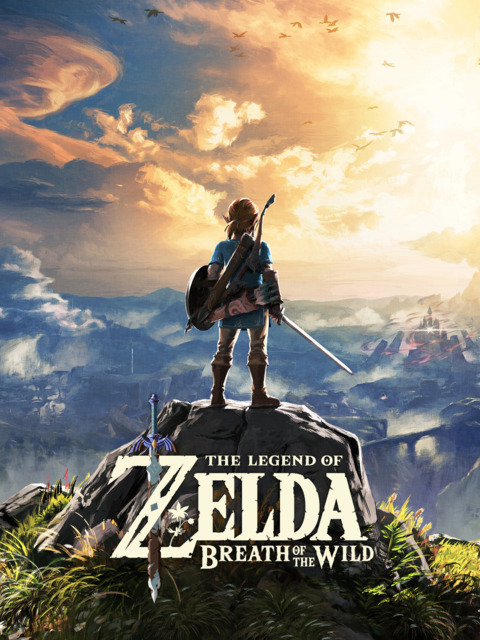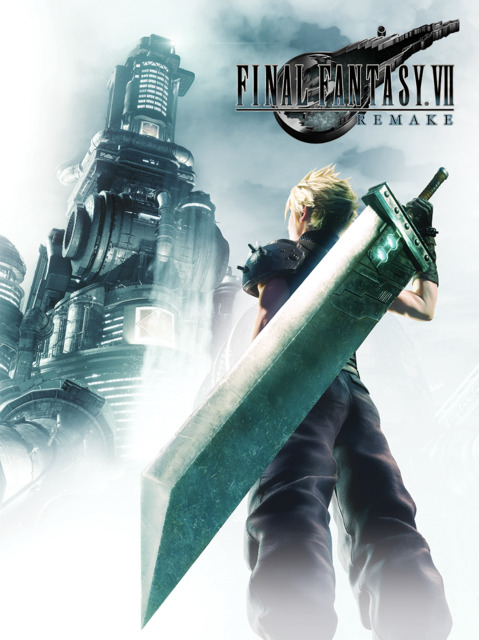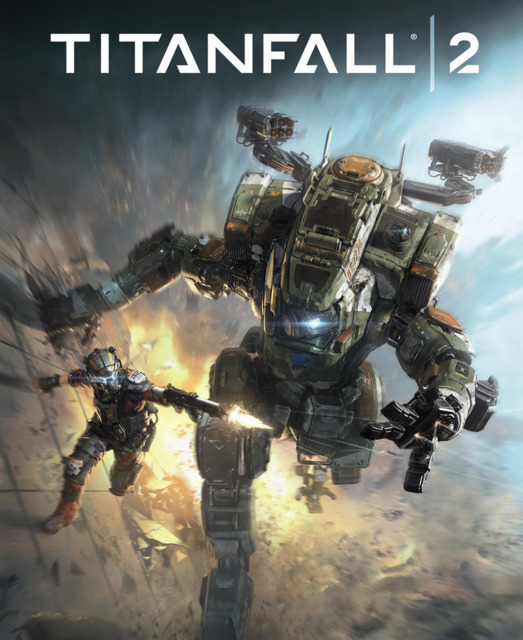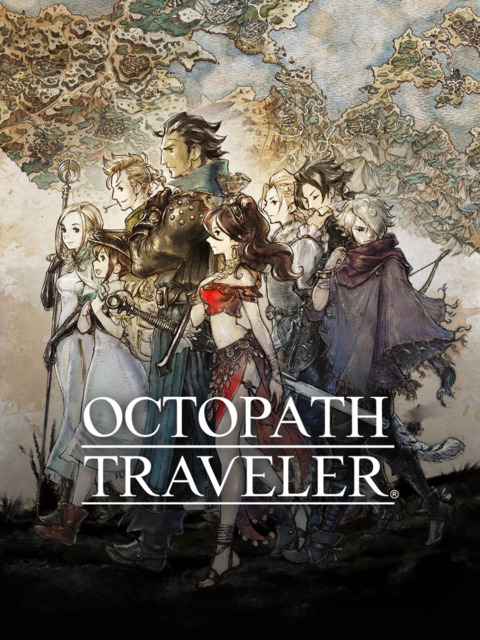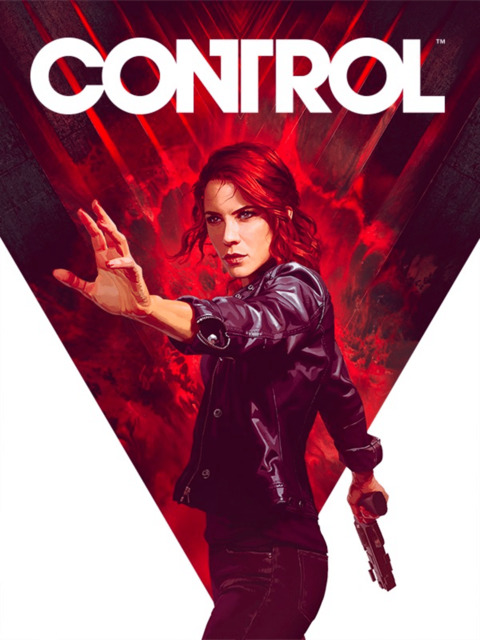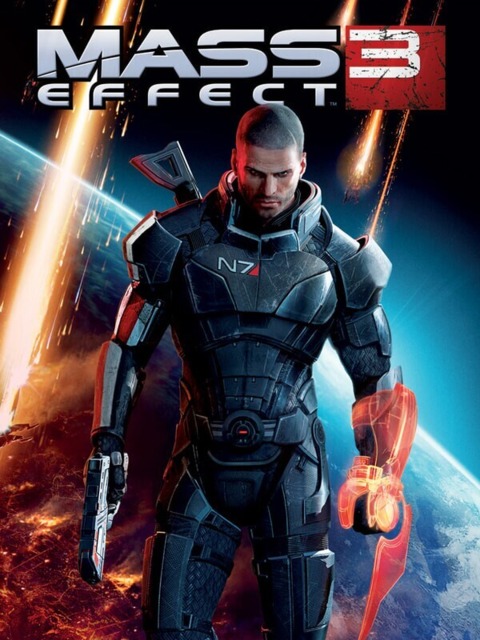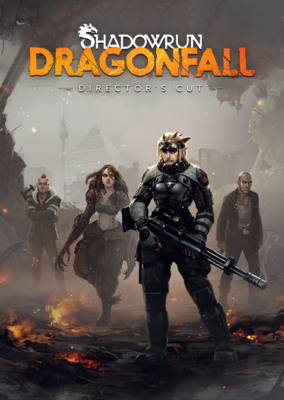List items
-
It may seem pretty bold to call this my favorite game of the decade considering it released just a few weeks ago, but when you know, you know. It's also really indicative of Final Fantasy XIV as a whole. Had I been playing since launch, each of the expansions would have been near the top of their respective years, so it seems like a foregone conclusion that Final Fantasy XIV would be the game of the decade. And somehow, Endwalker manages to raise the bar even higher, doing what many franchises across all mediums struggle with: Delivering an ending that exceeds expecations. Not only does Endwalker tell an engaging story in it's own right, it revisits elements from all of the older expansions, adding additional context and somehow making these experiences even better. I don't know if i've seen a better story in video games, it has such an astounding understanding of its characters and themes. Not once does anything feel wrong or off, returning cameos aren't just nostalgia bait, they have something to add, their own story to tell. Nothing is forgotten in this sprawling world, and somehow everything ends exactly where it feels like it's meant to. I've spent three years with these characters and seeing their arcs come to a close is one of the most emotionally resonant things i've seen in any medium, I can't imagine how it feels for people who have been here since the beginning.
That's to say nothing of the gameplay. FFXIV has always made sure every class is viable, and we've continually been at a point where no choice is "bad", so it's really just a matter of what you find fun, and that seems to be the ethos with the new classes and reworks. For every simplification in a class, there's another one taking it up a notch in complexity. Anyone can play Summoner, but Sage feels like it's own beast, unique from every other healer. And the more these classes can standout from one another, the better the game keeps getting.
I flip-flopped between this and Bloodborne a few times. Thematically, they hit pretty similar spaces. But while Bloodborne left me feeling dejected and spiraling about existential dread, Endwalker delivers a sense of renewed purpose and lust for life that's honestly pretty hard to come by as you get older. It takes a lot for a video game to reach me on any kind of emotional level, and I'll always be thankful for this story and these characters pushing me to forge ahead in life no matter the circumstances, thanks team!
-
As you get older you specifically search out things that make you feel like you did when you were a kid. Revisiting old favorites can sometimes ALMOST scratch that itch, but they're known factors, that sense of wonder is diminished as you remember the feelings, but can't quite acheive them. You may think it's a fool's errand to recapture that excitement you had. The weight of the world we carry as we age puts a damper on unbridled joy. Cynicism replaces curiosity as we remember we've seen it all before.
Then something like Bloodborne comes around and out of nowhere your sense of wonder is rejuvinated. It's weird that this was the game that did it for me, I had played the Souls games prior to this and really liked them! But something about Bloodborne feels different. Is it the speed of the combat? While I definitely prefer it to Souls combat we certainly ain't playing Devil May Cry here. Is it the setting? While gothic horror is pretty stylish it's never really been my cup of tea. Exploration? Rewarding bosses? Just enough story to let you fill in the gaps? All of these things I'd already loved and experienced in Souls.
No, what makes Bloodborne special to me is the idea that it's more than a game. That the ideas it's presenting are beyond comprehension, that you lay awake in bed thinking about what it all means, what is Bloodborne trying to say? It bores into your brain with ideas of existential dread and cosmic nightmares. No, Bloodborne tickled that childhood sense of wonder because the ideas it's playing with are unrelentless and terrifying. This is the game where Miyazaki's vision and mechanics are in perfect allignment to create something beyond a game. But you know what? It's also a blast to play.
-
Expressing yourself in games can mean a lot of different things. You can express yourself via a character creator, or by choices you make in the story. But those kind of expressions through choice always seemed very limiting to me. There are only so many branching paths you can have in your story, only so many hairstyle options your character can have.
No, I prefer expressing myself through the language of fighting games. In my mind, at their best, fighting games allow to express yourself multiple times a second. Every button you press is a choice, and when you go toe-to-toe with someone else making their own decisions, there's nothing like it.
Even to this day Ultimate Marvel Vs. Capcom 3 is the pinnacle of creativity in fighting games. You can mess with various team compositions for years and still discover new interactions, new synergies. There's nothing like taking a character to training mode, understanding what makes them tick, and realizing it's exactly what you've been looking for. I was literally watching a combo exhibition just the other day, not even a tournament, just a "show me your moves" style showcase.
Part of the magic is you don't even have to engage that deeply to connect. You can just mash buttons and cool stuff happens with some of your favorite characters from across franchises. There's a whole generation of people who know Marvel characters from their one liners in this franchise, the style and vibe is iconic.
You don't need a story mode or open world to put hours and hours into a game., you just need a versus mode. Of all the games on this list, this one is probably the one I've spent the most time with, and I don't regret it for a second.
-
Conversely, this might be the game I've spent the shortest amount of time with on this list, and is a pretty strong argument why the value of a game can't just be measured in hours played. It's packed with so many kickass elements that I still think about years later. I can still tell you about every boss fight in order, or the first time I hopped across missiles with my ninja run, or when I heard I could press R1 to enter "Ninja run mode."
What's great about Metal Gear Rising: Revengeance is that not only is it a joy ride top to bottom, it can also be one of the most challenging experiences you can have with an action game. Few mechanics are as perfect as the parry and blade mode found here, and with such a short runtime the game begs you to come back and experiment with higher difficulty settings, where being a badass ninja is its own reward. Absolutely incredible.
I'd also be remiss to not mention how smart this game is with music. I'm begging every other developer out there: Lyrics to a song should only kick in during the LAST phase of a boss. It's the greatest lesson MGR has to impart.
-
Too often, I think maybe video games aren't for me anymore. Part of it is the "searching for that childhood rush" thing, another part is the direction the industry has gone just doesn't interest me. You can't talk about the last decade of games without talking about the concept of an "open world." The idea of a world without limits or boundaries that many developers obsess with. In actuality, there are a ton of limits and tradeoffs required to make such a massive game. Sometimes the world is just too empty to be interesting, other times technical limitations create a buggy mess, and not in the fun way. Other times you can see the shortcuts taken, sidestories copy and pasted throughout the world. In the last ten years, for my money, only Breath of the Wild has delivered on the lofty promises an open world sandbox makes.
The prerequisites are all there, and on the surface you might be worried about the towers you have to climb to unveil the map, or the crafting system, or rain impacting your ability to climb. But all those trees are nothing compared to the forest. At the start of the game you're given one directive, one objective: Defeat Ganon. And what that means will be different for each player. You can immediately seek out Ganon and defeat him in under an hour, the door is right there. But most players will be more cautious. Exploring the world for the awesome sense of adventure, yes, but also with the end goal in mind. Many players will think it's foolish to face Ganon without getting the Master Sword, but where do I find that? The only quest markers on your map are the ones YOU put there, so unless you have some idea of where you want to look, you're kind of just wandering, wondering what you'll run into next and if it will lead to something cool, and every time the answer is yes! Even the traditional Zelda dungeons are completely optional. To me this is the pinnacle of what an open world game can be. This story is yours to tell, yours to experience, and the idea that everyone can experience something different is part of what makes video games so great.
In many ways, Breath of the Wild is an incredible throwback. The links (HAH) to the original game are clear, but you can also see a connection to Morrowind, a game ahead of it's time and that showed the possibility of what could happen when you truly give players ultimate freedom. But to me, Breath of the Wild is a throwback to being back on the playground, talking to my friends about the crazy things we had seen in Ocarina of Time. Around seventy percent of them were lies, but you could never tell what and you couldn't wait to get home to search out these riddles for yourself. Somehow, in the age of the internet, Breath of the Wild managed to capture this same feeling, and it reminded me that video games can still be good!
-
2005 was an annoying year. As an informed video game fan I had to keep telling my friends the footage they had seen of a Final Fantasy VII remake was just a PS3 tech demo. They had done it with VI, and VIII too, it didn't mean anything, and it would never happen because Final Fantasy VII was such a place and time thing there's no way it could acheive those same stunning heights five, ten, fifteen years later.
Luckily, the team that made this game ALSO knew they couldn't just beat for beat recreate the game. There was a lot of controversy around the "episodic" release of the remake when it was first announced, likely because that word has connotations that simply don't apply here. This isn't the first 5-10 hours of the game with a fresh coat of paint, it's a complete reimagining of the original content expanded into a 50-60 hour adventure that builds upon the legacy of its predessecor instead of just referencing it. It knows it has to be surprising to keep people engaged, and there are plenty of twists to the classic story along the way. It's also not afraid to tackle some mature content the series has normally shied away from (XIV being the exception). Most people will take the stairs up Shinra tower near the end of the game, but Barret's speech in the elevator is some heavy shit that felt VERY relevent in the back half of 2020.
You also can't talk about Remake without mentioning the music, a perfect example of what the game is going for. Classic tracks are re-arranged, stretched thin into barely recognizable versions of themselves, only to come back around and drop a classic beat that makes you cheer as you take on an all too familiar boss. There are times when you'll feel dissapointed with changes, only for the last third to completely go the direction you want it to. The team knows what you want, and they'll get you there if you just have a little faith.
For years Final Fantasy has struggled to find a way to make turn-based combat feel as thrilling as a modern action game, and I think the battle system here is where they finally hit what they were looking for. Final Fantasy XIII was a good start, and XV felt a little too shallow, but VII retains the customization of the original game while also delivering bone-crushing action. Every character feels unique to control and has at least a few moves that never get old throughout the entire run time. (Personally, I love the "pop" at the end of Barret's basic combo).
At the intersection of nostalgia and innovation sits Final Fantasy VII Remake. In 2021, there's a lot of media that's just "hey, remember this thing!" more motivated by money then love. Don't get me wrong, you don't remake this game unless you want to make a lot of money, but I'm thrilled the team sat down and decided to make a game that grapples with its own legacy and chooses to go it's own direction. I don't know when the next game in this series is coming, but I know it will be worth the wait.
-
It's a low bar, but the best part of 2016 might be the return of the kickass first-person shooter. Doom 2016 and the New Colossus offered high-octane adventures, but it's Titanfall 2 that has the strongest legacy for me.
Every level in this campaign could be expanded into it's own game, in fact I played a little of Ratched and Clank this year and WISH it was more like Cause and Effect. But Titanfall 2 discards its gimmicks with a glee of a rich kid blowing up his old toys on the fourth of July, as soon as they show you this cool concept they designed it's on to the next thing. The game rejects the cinematic notions of something like a Call of Duty campaign and instead strikes the perfect balance between levels guiding you to the next big action set and a sense of exploration that truly feels like this world is your sandbox. From start to finish, the campaign never lets up and even the linear set pieces that would normally annoy me feel so good in this skin.
The various mobility options make you you feel just as good on foot as you do in a Titan, and that's essential for a game like this, and the game doesn't lose any of this balance in it's fantastic multiplayer setup. I can't think of another multiplayer setup that feels as good as rodeoing a titan, taking it's battery, and giving it to a friendly bot instead. Maybe torching like 3 dudes in one shot as Scorch. The point is this game feels damn good and still holds up today.
-
Like Final Fantasy VII Remake or Breath of the Wild, Octopath Traveler feels like a look at the past with the lessons of the future. A turn-based JRPG with a twist, Octopath Traveler tells eight tales focusing on eight different characters that can be tackled in any order. This sense of freedom feels odd in a game steeped in JRPG traditions, and is probably the closest the genre can get to a more open-world approach. And it really works for me! Not in the sense that I was crafting my own experience, but in the fact that I could choose how I wanted to tackle things, always considering where I wanted to shine the spotlight next. This wouldn't work nearly as well if the character's weren't all charming as hell, and there's not a stinker in the bunch!
Octopath Traveler is also a little smarter than it appears. The game trusts the player to realize these stories aren't actually all that disconnected, as tiny details link characters to one another, making for an epilogue that's truly one for the ages.
Octopath Traveler is also HARD. It doesn't hold your hand, it expects you to engage with its battle system and strategize before and after a fight. I respect it, I'm not just sitting there pressing A, i'm planning out job compositions, and thinking about how many battle points to use during any given round. It's been a long time since a JRPG challenged me the way Octopath did.
I didn't even mention the music and the artstyle, both of which are also 10/10. I wish I lived in the alternate world where this is the direction JRPGs went after the 16-bit era.
-
It's cool we're at a stage where games can be like movies. I'm glad those type of games exist, but games as "cinematic experiences" have never really been for me.
Remedy has always been the exception, and it's because they know they're still making a video game, and take advantage of the medium. The world of Control is conveyed through office memos explaining why pencils are outlawed, through signs you have to follow because the in-game map actually isn't that good. Through enemy design and bosses and rooms with quarantined rubber ducks. It's what you see, not what you're told, like a less obscure Bloodborne. But the pieces it does decide to fill in for you are rad as hell. You tell me I'm exploring a place called The Oldest House and I'm already in, combine that with the aforementioned A+ worldbuilding and some Old Gods of Asgard music and you have a game that ends up resonating with me. I'm not a "collector" in games, but the setup in Control was so good that I HAD to find every note to learn more about the world, or discover some easter egg that connects this story to a bigger universe.
The gameplay itself is also solid, third person shooter's feel a little old hat these days but Control's snappiness never makes it feel like the game is a chore, and a reliable set of classic video game powers give it some laugh out loud moments that remind you above all else this game is FUN. Sam Lake could make Citizen Kane but Orson Wells could NOT craft the Ashtray Maze.
-
A game that all too frequently succumbs to the weight of its franchises promises. The controversy around Mass Effect 3's ending always rubbed me the wrong way, and was definitely a flashpoint in the "culture" of games. Where players realized we lived in a world where they had the power to enact change if they didn't like something. Where games could be "fixed" on the fly if their voices were loud enough. Is that a good thing? Sometimes yes, sometimes no. In this case? I really don't care. I said I wasn't really a narrative guy and despite the moments of pathos and closure this game provided my favorite memories are bouncing around like a pinball between enemies as a Vanguard and just generally having a good time. It's why I'm currently in the process of redownloading the multiplayer on my Series S and playing with some buddies. The shift to action game that began in Mass Effect 2 is perfected here, and it's an absolute blast from start to finish.
Honestly I didn't really mind the story either, it wasn't until after I finished that I learned there was a growing sentiment of hate about how everything wrapped up. Of course it's a binary choice, that's what the ENTIRE saga has been. All that to say I'm not an ending hater, the extended cut was fine but honestly I was happy saying goodbye to these characters in the moments presented here. I don't know, what can I say about this game that hasn't already been said? I don't think people would have been so mad if this wasn't something they cared about, maybe it's due for a re-evaluation with the Legendary Edition coming out last year, but it's always had a soft spot in my heart for the multiplayer alone, easily my most played game of 2012.
-
2014 is generally considered a pretty weak year for games. The new consoles had just launched with a bunch of ports and clumsy first attempts at next-gen greatness. The Wii U was actually having a solid year but marred by some odd hardware solutions. So it makes sense that my game of the year would be an indy-developed PC game, Shadowrun: Dragonfall.
The second in the revamped Shadowrun Trilogy, Shadowrun: Dragonfall uses the same engine as Returns but comes backed in with a lovable cast of characters and tacticle X-Com combat on a smaller, more intimitate scale.
Cyberpunk was a major theme this decade, and honestly I think Dragonfall may do it the best. Rolling with a crew, just trying to do jobs to survive is a ton of fun, and even if there's not THAT much choice in this game the illusion is there, and by the end of the game your party really does feel liek your family, and that's pretty impressive without any big budget voice acting or cutscenes, memories of a simpler time I suppose.
The combat is fairly straightforward but indulges in that cyberpunk flare. I particularly love the "hacking" sections that essentially take you to a different map while you try to get through a security network. It's a neat trick that adds some extra dimensions to "move here, shoot this guy" combat.
It's just a nice, confident game, something that was sorely needed in 2014, and even though I played it on a small labtop screen on the floor of my girlfriend's apartment, it felt like the biggest thing that year.
